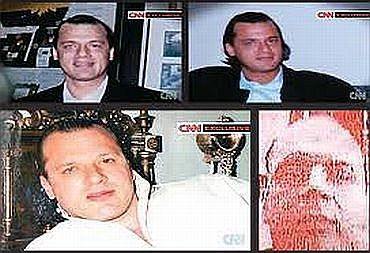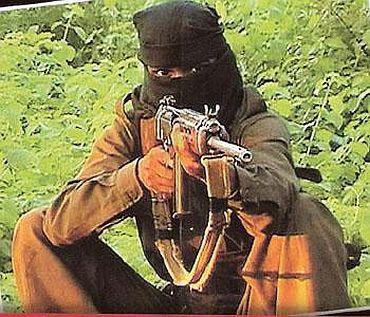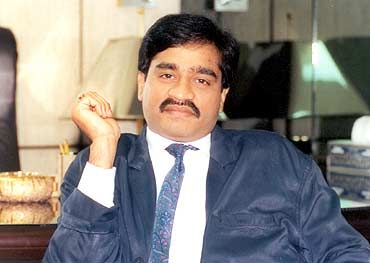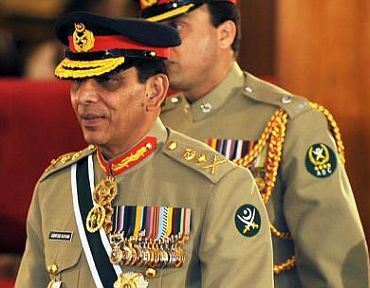 | « Back to article | Print this article |
LeT-Dawood-Naxal nexus can't be ruled out: Experts
American and Pakistani experts on the Pakistan-based terror outfit Lakshar-e-Tayiba, which perpetrated the horrific 26/11 Mumbai terror attacks, said at a terrorism seminar in Washington, DC that even though no hard evidence existed of a nexus between the LeT and criminal elements like the Dawood Ibrahim Company or even the Naxals, it couldn't be ruled out completely.
Sebastian Rotella is a senior reporter with ProPublica, whose investigative reports on Pakistani American LeT operative David Coleman Headley confirmed a Inter Services Intelligence connection to the 26/11 attacks.
Rotella said in his research and interviews despite Headley once having been a double agent for the US Drug Enforcement Administration, hadn't borne out a clear connection with drug trafficking syndicate such as the Dawood Ibrahim Company, although the latter had been implicated in earlier Mumbai attacks.
"I didn't see a lot of connections to crime in the attacks themselves, particularly compared to the previous attacks in Mumbai," he said, but acknowledged, "There were certainly connections to crime."
Rotella said, "There is a moment for example when Headley -- showing the level of connections he had -- actually introduced Lakshar people to smugglers, for smuggling weapons across the border to India."
"But, I think, one of the reasons was (lack of the nexus to criminal syndicate) the conception of the Mumbai attacks is different in the sense that you have this excellent undercover reconnaissance operative who was American, and there is a great reliance on him and he does a lot of the work sort of projected in from the outside to maintain operational secrecy."
However, Rotella conceded that "there were other people involved in reconnaissance and we don't know about all of them, I've been told. So, maybe there were peripheral rows of people involved in criminality. But I am not aware of anything in depth."
Please click NEXT to read further..
'It's quite plausible that LeT elements might assist Naxals'
Stephen Tankel, a senior fellow at the Carnegie Endowment for International Peace and author of Storming the World Stage: The Story of Lakshar-e-Tayiba, said, rumours that Lakshar had begun to extend a hand to the Naxalites that operate in the 'red corridor' in India have been circulating for some years now.
"It's quite plausible that some elements of LeT might be trying to assist the Maoists who are in India as a means of destabilising other parts of India or perhaps getting a foothold," he said.
"It's something that I personally have been seeking to try to verify and haven't been able to do so," he said.
'Lashkar's tactics have shifted'
"But I can attest to that it's something that has been knocking around for a while and that is of significant interest," Tankel said.
"Because it would speak to one, the degree to which LeT's tactics have shifted and indeed to expand even further and two, the degree to which the group is sort of willing to make alliances outside of its circle in terms of accomplishing its objectives in India," he added.
But Tankel in echoing Rotella's contention that there is no hard evidence of such a nexus either with the Dawood Ibrahim syndicate or the Naxalites, particularly with regard to 26/11, asserted that if it were so, "it would have come to light at some point that it was involved and no evidence suggests up to this point that that has been the case."
"But criminal networks in India were intrinsic to Lakshar's ability to build its own presence there," he said.
"The Indian Mujaheddin, which is a Lakshar supported network came together in large part through the involvement of members of the South Asian criminal underworld," he noted.
'Lashkar wants to break India'
Arif Jamal, author of Shadow War: The Untold Story of Jihad in Kashmir, who, according to Tankel was indispensable for the research of his own book, since he (Jamal) was plugged in with LeT insiders, said, Lakshar's laser-like focus continued to be launching attacks on India as a proxy of the Pakistani military and the ISI.
"They want to break up India ultimately and set up an Islamic state there," he said. "Lakshar is not aiming for global jihad in the immediate future. Lakshar's leadership is very clever and very pragmatic."
Jamal said, "In the last 10 years, they have kept their relations with the (Pakistani) establishment intact. They have not turned their guns against the Pakistani state like the Deobandis."
He recalled how angry Pakistani generals and ISI leadership bristle when Lakshar is vilified in the US, and pointed out in particular how former Pakistani army chief and ISI director General Ehsan ul-Haq reacted during a recent speaking tour in the US when the Lakshar question came up during various think tank seminars.
'Pak military isn't ready to abandon terror as policy instrument'
Jamal declared, "Lakshar remains the most favoured and favourite group in Pakistan for the military establishment. I don't see the established Pakistani military establishment going against the Lakshar in the immediate future for several reasons. And the military is not ready to abandon the policy of using jihad as an instrument of its defense policy."
"There is no threat as such to the world from Lakshar in the immediate foreseeable future," he said.
Jamal emphasised that "Lakshar has committed violence only in India -- not in Pakistan, and very little in Afghanistan. And, the people are attracted to Lakshar very much and the last time I counted the number of members, it was more than 300,000 armed and trained, which is very, very threatening and it's growing. I was still counting when I reached 300,000."
"And my sense is that the Pakistani military is seeing the Lakshar and the Lakshar agrees with this strategy to replace the Taliban in Afghanistan, because the Pakistani military is very Indian-centric and they have lost trust in the Deobandi jihadis," he said.
"Because after the fall of the Taliban, they turned their guns against the Pakistani military."
Thus, Jamal predicted, "I believe in 10-15 years, they would like to see Lakshar in Kabul rather than any Deobandi group."
Tankel said, "To a large degree, Lakshar's appeal within Pakistan is three-fold. One is, when it fights, it's against India, which is the country's main enemy. Two, it hasn't turned its guns on the state, and three, it is providing a host of services that in many parts of the country the state is not -- education, welfare, healthcare."
He said, "It's got the second-largest ambulance service. And so, the degree to which the United States can take steps, one, to pressure Pakistanis (the government) to actually take over this infrastructure and run it themselves and the degree to which we can help support the growth of education and development within the country, both of those are going to be very important."
But Tankel reiterated that "the case remains that even though the Jamat-ud-Dawah (the parent organisation of Lakshar) has been banned by the United Nations, it hasn't been banned within Pakistan and this whole infrastructure that it uses for this missionary outreach remains extant."




